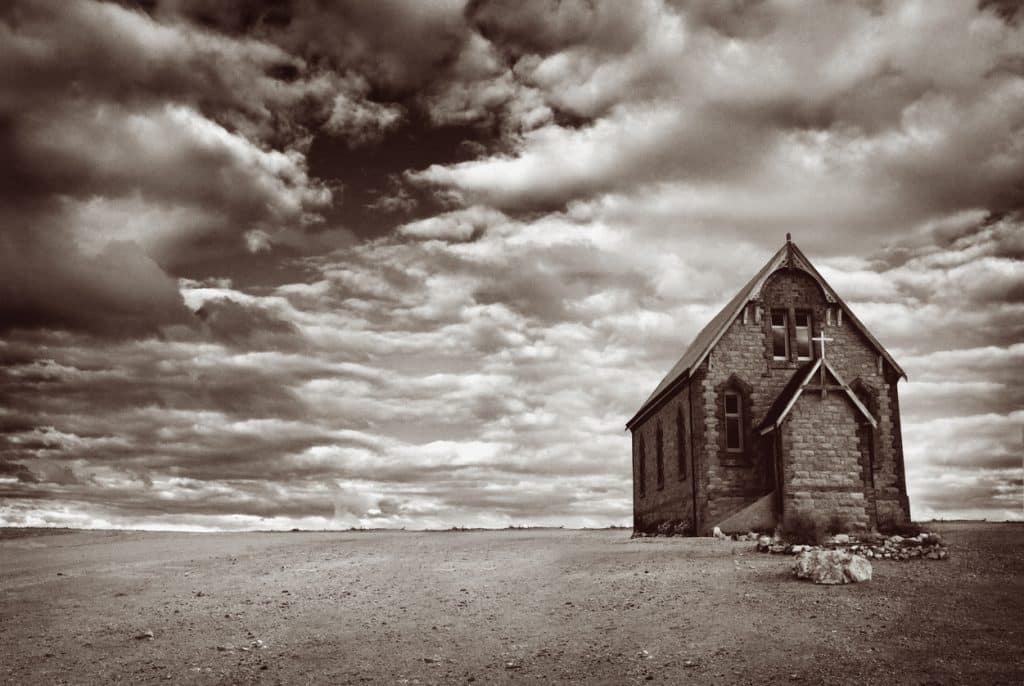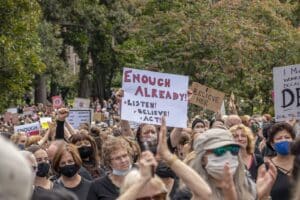
Anne Pattel-Gray
23 July 2023
I have been asked to write an article on what decolonising the church would look like in practice. This could take many forms as there are many steps we could take. Here, I will consider ones we Christians might think about.
The decolonising process Indigenous theologians, Church leaders and Christian community are calling for is to address exclusion and marginalisation – where we find ourselves on the periphery of church structures. So, a good place to start would be to move the Indigenous Church bodies from the periphery to the centre, recognise our leadership, and value our theological insights and the significant cultural contribution we can bring to the church.
Read more: ‘God’s called me to stand up’: Professor Anne Pattel-Gray
Australia’s Christian community is multicultural, and yet this isn’t reflected within the upper levels of leadership of the church: the decision makers, executives and senior clergy. These are still predominately white men and women. There may be a sprinkling of ethnic leaders but certainly no Indigenous leaders in non-Indigenous positions. I believe there is an unspoken belief that Indigenous Christians are unable to provide leadership to the whole church as we lack capability, education, and opportunity. I have been told by various leaders that Indigenous people are incapable of providing leadership to the broader church, that Indigenous people are best to just provide leadership to their own people. This is very disappointing. Many Indigenous leaders bring theological knowledge, sound business acumen, decolonising processes, and transformative practices. These abilities would enhance the Christian faith and build greater relationships, moving us towards a more just and egalitarian Christian community where all people are valued, respected, and embraced. As Galatians 3:28 reminds us, “There is neither Jew nor Gentile, neither slave nor free, nor is there male and female, for you are all one in Christ Jesus.” How fabulous if this were only true. While Indigenous people remain ostracised, oppressed, and confined to a life of poverty and high incarceration there can be no oneness in Christ.
Read more: Australia must respect First Peoples’ by letting them speak
So, will there ever be an Indigenous person appointed as the Primate of Australia? Will we have more than one national Indigenous Bishop, or an Indigenous General Secretary of the General Synod, and Indigenous appointments on executive committees at the national and state levels? When will Indigenous people be appointed to national and state executive positions within the church? To do so would be a movement forward on decolonising and more importantly a further step towards reconciliation.
Theological education within Australia for Indigenous people has also been a racist system of exclusion. Indigenous Christians have been restrained to an inferior version of the education mainline churches offer. Sadly, many First Nations people had no formal education, some had limited primary education, and there was no financial assistance for secondary education scholarships, let alone university study. Most could only access theological education through Vocational Education and Training establishments. Systemic racism was built into these systems, as with other theological education systems. Most staff at VETs were white, which meant the continuing biblical and theological colonisation of Indigenous people under the guise of ministry training.
Read more: Anglican Church asks Australians to consider ‘yes’ vote on Voice to Parliament
In 2022 the University of Divinity established the School of Indigenous Studies, which began the process of decolonising theological education. It opened the doors for Indigenous Christians to access academic theological education.
The decolonising process is at the heart of our theological education at the School of Indigenous Studies. The school is staffed by Indigenous academics, the curriculum is Indigenous, with an Indigenous pedagogy, founded on Indigenous knowledge and worldview. Part of its purpose is to facilitate spiritual inclusion where historically there was injustice and inequality in tertiary education. It includes social, political, and economic engagement for Indigenous people and recognises sovereignty. The school also engages with non-Indigenous people to educate them on Indigenous knowledges.
Read more: A Voice to Parliament is just a first step towards healing
This pivotal shift in theological education recognises the capabilities of Indigenous church leaders and theologians. It gives us a position of leadership, including a seat at the decision-making table where we can drive our future, and to influence and shape theological education.
Reparations are another critical part of decolonising the church, as this is where Indigenous land is given back, or Indigenous peoples are compensated for its theft. Colonial invaders stole this land from the Indigenous peoples and the collusion between the Australian government and churches has given churches great wealth, power, and privilege. It is not enough to say “Sorry”. It is important for Australian churches to act on delivering justice to Indigenous Christians. Now is the time for “Voice”, “Truth-Telling”, and “Treaty”. And now is the time for churches to atone for the sins of their forebearers and pay reparations to the Indigenous churches and nations for the theft of land, for slavery, cultural genocide, and the stolen generations.
We Christians are given a mandate by God to be for Christ ambassadors for reconciliation in 2 Corinthians 5. This places a great responsibility on us to further reconciliation in this country, to right the wrongs of our past and to build the foundations for justice. Our shared history is one that reflects our courage and boldness to cut a new path towards justice and a shared relationship of respect, commitment, and integrity.
Anne Pattel-Gray is Professor of Indigenous Studies and head of the School of Indigenous Studies at the University of Divinity.
For more faith news, follow The Melbourne Anglican on Facebook, Twitter, or subscribe to our weekly emails.






